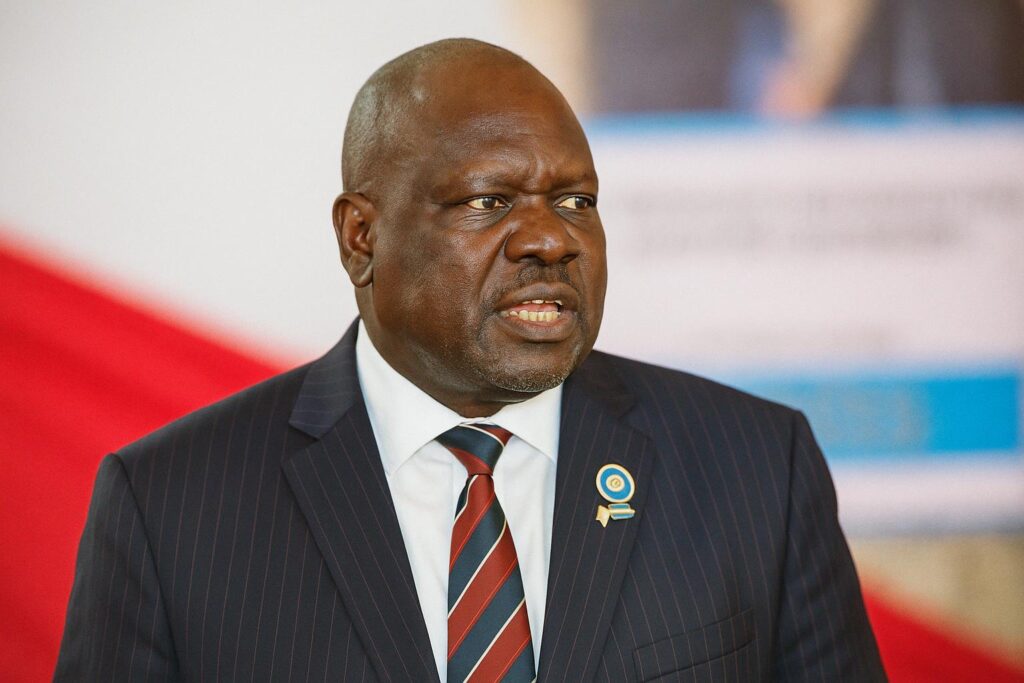High-Stakes Juba Trial Resumes
The special court in Juba resumed its 15th sitting at Freedom Hall, dissecting the March 2025 Nasir assault that left more than 200 soldiers dead. Suspended First Vice President Riek Machar and seven co-accused listen behind glass as prosecutors outline charges of mass murder and treason.
Disappearance of Four Allies Sparks Alarm
Defense lawyer Kur Lual Kur stunned the hall by declaring that four men seized during Machar’s house arrest in March had vanished. “They have neither been released nor presented here,” he insisted, naming Mark Dhieu, Par Dang, Kuok Dang and Hoth Choc.
Defense Queries Probe’s Neutrality
Lead investigator Maj. Gen. Basilio Thomas Wani replied that the quartet “did not appear in the investigation,” adding he knew nothing of their location. The admission fed defense claims that early detentions bypassed proper oversight and that key suspects or witnesses may remain in limbo.
Under cross-examination, Kur cited public remarks by senior officials blaming Machar’s SPLM-IO before inquiries even began. Wani said he was unaware of any statements by Michael Makuei, Taban Deng Gai or Vice President Benjamin Bol Mel, prompting murmurs about potential political framing of the rebellion narrative.
Diplomatic Evidence Route Under Question
Testimony confirmed that National Security Service officers collected laptops, phones and firearms from Machar’s residence, later transferring them to an inter-agency committee. Defense attorneys demanded proof that every serial number was logged, warning that gaps could compromise the chain of custody required for credible exhibits.
Wani recounted how a sealed diplomatic bag traveled to Pretoria for forensic checks and returned under Ambassador Denis Dumo’s seal. He said such cooperation “normally occurs at government-to-government level,” yet conceded ignorance of any formal evidence-sharing accord with South Africa.
Awaited Rulings Could Redefine Proceedings
With procedural motions piling up, the bench ordered corrected filings before Friday, 31 October, when new witnesses will face questioning. Observers predict that the fate of the missing four could shape both public confidence and the legal complexion of South Sudan’s most watched trial.


